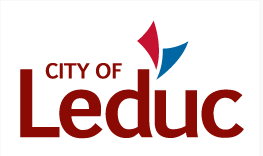|
Based on input collected from the community, city partners and a Housing Needs Assessment, the draft Leduc Housing Strategy outlines six priorities to address the city’s growing housing needs. The strategy will provide a roadmap for sustainable and affordable housing for the next five years.
“With Leduc’s population expected to hit 60,000 in ten years, a focused approach is vital to ensure residents will have access to affordable, varied, and secure housing,” says Teaka Broughm, Director of Planning and Economic Development for the City of Leduc.
The six strategic priorities are:
1. Increase supply of non-market housing
Despite high median incomes, over 2,200 households earned less than $50,000 in 2021. Immediate action is needed to provide more affordable housing options with growing waitlists for subsidized housing, challenges faced by single-parent families and those on fixed incomes, and demand for non-market housing far exceeding supply.
2. Maintain and enhance supply of rental and non-market housing
Vacancy rates are near zero, and rental rates have increased by 17 per cent since 2021 indicating a rising need to maintain our rental and non-market housing stock in the City. The share of renter households is growing, and one-third of Leduc's rental units were built before 1981, making them vulnerable to redevelopment and loss due to age.
3. Increase housing options
A variety of housing options is essential for Leduc’s long-term growth and sustainability, especially with a growing senior population needing support for aging in place. Feedback collected saw expressed interest in more housing choices, including supportive living, downsizing opportunities, non-market units, multi-generational living, and more accessible locations without the need for a private vehicle.
4. Address housing insecurity and homelessness
Nine per cent of Leduc households faced Core Housing Need in 2021, with increasing numbers of seniors on fixed incomes and individuals with disabilities. Vulnerable populations have limited secure housing options, often forcing them to seek support elsewhere. The Leduc HUB Association estimated that 80-95 individuals were homeless in Leduc as of February 2024.
5. Continue to deliver exceptional service
As of August 2024, the City was on track to set a record for residential development permits. Digital permitting has sped up approvals and increased transparency for developers. Investment in staffing, process improvements, modernization, and data systems is necessary to maintain service.
6. Promote and focus on location efficiency
By situating homes near schools, jobs, services, and amenities, it reduces transportation costs, the second-highest household expense, and supports alternative transportation options. Prioritizing location efficiency boosts economic, environmental, and social benefits, making urban areas more livable and enhancing quality of life.
“To ensure the strategy sets up the City for success, tactics with actions will lead the way for how we can meet each priority.”
The strategy’s tactics and supporting actions range from offering incentives and adjusting zoning to hosting housing symposium and prioritizing development near transit hubs. The final version of strategy will be presented to Council for approval in January 2025.
Learn more about the project at Leduc.ca/housingstrategy.
|

